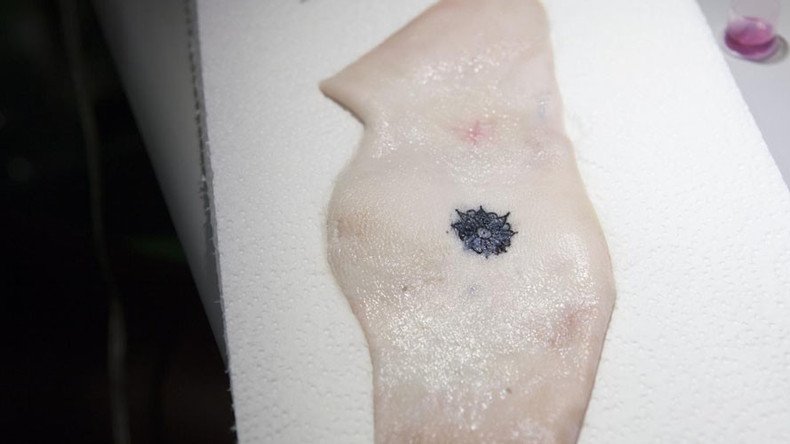Color-changing tattoos could revolutionize how we treat diabetes (VIDEO)

Scientists are testing new tattoo ink which morphs in color depending on changes to your health.
The Dermal Abyss project by researchers at Massachusetts Institute of Technology (MIT) is being tipped to change the way common ailments like diabetes are monitored.
READ MORE: Almost 1/3 of people worldwide overweight, says new study
Using biosensor ‘ink’, which interacts with glucose, sodium and other chemical compounds produced by humans, it’s hoped the tattoos may be able to show when a person’s body is experiencing health-impacting changes.
Using tattoos as biosensors to track our health: @Dezeen on DermalAbyss from @medialab & @harvardmedhttps://t.co/eiP7kKIFTjpic.twitter.com/KoyvzGP7He
— MIT Media Lab (@medialab) June 5, 2017
For example, Dermal Abyss may make the daily piercing of the skin a thing of the past for diabetics, since glucose levels would be revealed through the colors of a tattoo.
It could also provide an instant warning to those in danger of suffering from potentially fatal complications deriving from hyperglycemia.
Developed by MIT researchers Katia Vega, Xin Liu, Viirj Kan and Nick Barry, the first stage of tattoo testing was carried out using skin from a dead pig.
READ MORE: Artist develops ‘soundwave’ tattoos to immortalize voices of nearest & dearest
Footage of the technology explains how traditional inks are replaced by biosensors “whose colors change in response to variations in the interstitial fluid.”
According to MIT, the exploratory stage of the project is still ongoing and there are no plans to pursue clinical trials at this moment.












